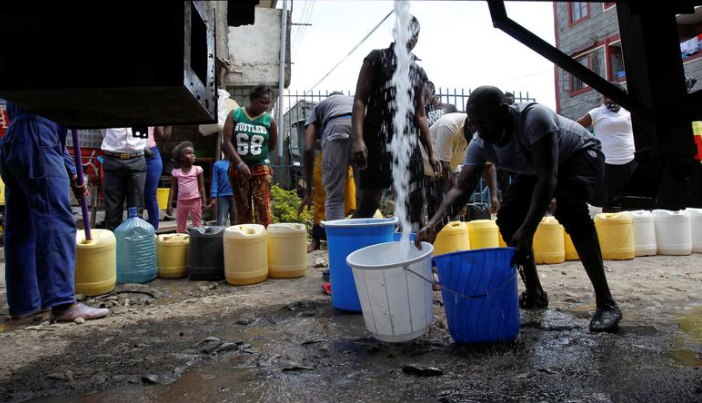Kenya Water has attributed the recent water discoloration affecting several Nairobi estates to a pipeline burst that occurred on November 20, 2025.
In a statement released on Friday, November 21, the water utility company explained that the incident occurred on the Sasumua-Kabete pipeline, disrupting regular water supply and causing discoloration in affected areas, including Westlands, Parklands, Loresho, Kitusuru, Gigiri, and surrounding neighborhoods.
According to the statement, technical teams responded immediately to the burst and successfully repaired the pipeline. However, heavy rains in the Sasumua catchment area allowed some discolored water to enter the system during the repair process, leading to the water quality issues experienced by residents.
Kenya Water outlined the steps being taken to restore normal water quality across the affected areas. The company confirmed that the pipeline has been fully repaired and thoroughly flushed to remove any contaminants.
"The upstream section of the system has now stabilized and is supplying clear water," the statement indicated.
Read More
For the affected downstream areas, the utility company reported that these sections have been isolated, with teams systematically flushing the network to restore full water quality as quickly as possible.
The water company apologized for the inconvenience caused by the incident and expressed appreciation for customers' patience as restoration efforts continue.
Residents who are still experiencing discoloured water or have any other water quality concerns have been advised to contact the Water Quality Team at Kabete Central Laboratory immediately via hotline number 0712 931 194.

This incident comes as Kenya Water continues to grapple with service delivery challenges across the capital. In a statement in October, the Nairobi City Water and Sewerage Company announced a comprehensive disconnection exercise targeting accounts with outstanding bills, which began on October 15.
The enforcement action affected all consumer categories, including government ministries, departments, and agencies; county governments; water service providers; commercial entities; and domestic consumers.
The company had noted that many accounts remained in default despite repeated notices and reminders, prompting decisive measures to recover arrears.
Payments were to be made through NCWSC's authorized channels, including M-Pesa Pay Bill number 444400, the NCWSC customer portal, partner banks, and official pay points. The water utility clarified that no institution or consumer is exempt from the enforcement measures.






-1771737995.png)
